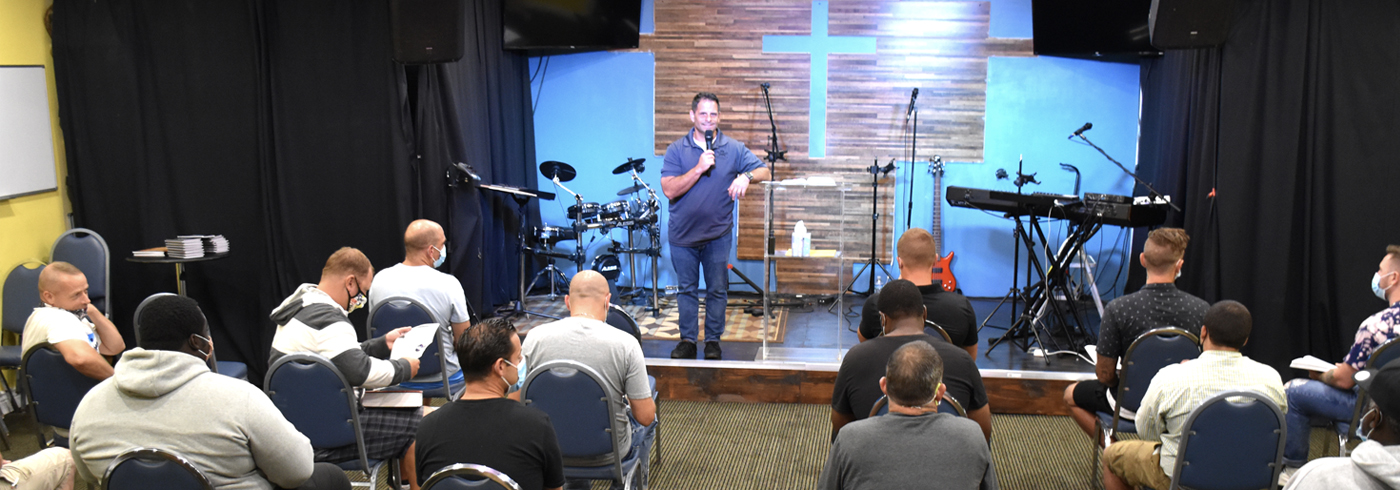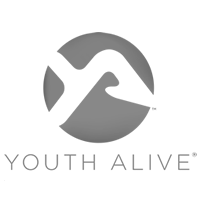
A Looming Addiction Crisis
By John W. Kennedy | Adult & Teen Challenge
The stress and social distancing protocols implemented by the COVID-19 pandemic have caused an increase in an unhealthy dependence on dangerous substances — including a resurgence of fatal opioid overdoses.
Drug abuse prevention experts believe the worst is yet to come.
Gary W. Blackard, president and CEO of Adult & Teen Challenge U.S.A., a department of Assemblies of God U.S. Missions, says multiple factors are involved in this year’s recorded hike in substance abuse and addiction problems.
“Anxiety, loneliness, personal loss, job loss, financial ruin, and an uncertain future are often precursors to both mental illness and substance abuse,” says Blackard, who is based in Ozark, Missouri. “The virus is creating the perfect storm for an already-vulnerable demographic.”
Not only that, Blackard says the current economic shutdown posits the potential for unprecedented “death by despair” — deaths linked to drugs, alcohol, or suicide.
“The worst thing a person who is struggling with mental health can do right now is to isolate,” Blackard says. “That can lead to doing more drugs, overdosing, and maybe even taking one’s own life.”
Health care researchers are predicting an increase in the number of people addicted as well as suicides because of the coronavirus quarantine. Depending on how long the pandemic lasts, projections from the Robert Graham Center range from an additional 27,644 to 154,037 deaths in the next decade as a result of despair over the pandemic.
THE CURRENT SITUATION
While statistics show overdoses have risen 42 percent since February, Paul K. Burke, executive director at Brooklyn Teen Challenge, says the number of inquiries for help have dropped.
“Some addicts right now think they have a great excuse for not getting into a program,” Burke says. “They think, It’s not my fault, it’s COVID; the country is in crisis. I see a wave of need when this pandemic winds down.”
Compounding the dangers, Blackard says, is the reality that users often have compromised lungs or cardiovascular systems.
“Those in addiction are more vulnerable to what COVID can do to their bodies,” says Blackard, 51.
The report by the Robert Graham Center states that the highest rate of deaths of despair in 2018 occurred among those aged 55 to 64, followed by those ages 45 to 54.
Blackard says the pandemic has done nothing to diminish the availability of alcohol or illicit drugs. In most states, liquor stores have been deemed “essential services.” Blackard says drug dealers desperate for money are willing to deliver to residences and even have phone apps for such purposes.
Numerous Adult & Teen Challenge centers around the country suspended intakes after the coronavirus began, with some even closing temporarily. Burke says the impact of the coronavirus really caught hard-hit New York off guard. Brooklyn Teen Challenge, founded in 1958 by David Wilkerson, is the original Teen Challenge center.
“For a short season we were not able to take in anyone new,” says Burke, 45. “Testing wasn’t available, and when it was, it took a week to get results. We couldn’t take a chance on bringing a person into the facility who might infect 40 other people.”
For a two-month span, students and staff largely remained on lockdown at the facility, unable to visit family at home or to have relatives visit them. Wednesday and Friday chapel services, which conventionally are open to the public, had to be contained to only those from the complex.
Burke, who lives off site, kept separated in another building on the property during working hours, conducting interpersonal communication via conference calls or FaceTime. For two months, he had no physical contact with students or other staff. None of the 25 students enrolled withdrew from the program during the span.
“I don’t think our morale was ever higher,” says Burke, an Adult & Teen Challenge graduate who has worked for the ministry for 12 years. “People get close when they spend a lot of time together.”
THE LONG ROAD AHEAD
These days, Blackard says most Adult & Teen Challenge units are back to functioning as before, with precautionary measures in place. Those include following Centers for Disease Control & Prevention guidelines for taking temperatures, deep cleaning of facilities, and quarantining any positive cases among staff and students for 14 days.
COVID-19 has restricted the budgets of most centers, which usually rely on going to visit churches as a means of fundraising.
“Without contact to people outside, it’s been difficult to get any kind of traditional financial support,” Burke says.
However, Blackard says scores of centers have received financial assistance from U.S. Small Business Administration Paycheck Protection Program forgivable loans. Blackard believes it’s the first time the federal government has approved funding Adult & Teen Challenge centers without reservations regarding the ministry’s distinct religious nature.
Burke says only one staff member at the Brooklyn Teen Challenge contracted the coronavirus, and that involved a mild case in March. The facility has continued to function in teaching classes and holding chapel services — with social distancing, no altar calls, and no laying on of hands.
Adult & Teen Challenge facilities also have been aided in continuing to teach curriculum by the recent implementation of Sober Peer, an app designed for individuals who are not ready to join or those who need ongoing support after graduating.
Meanwhile, in an effort to thwart what could be an opioid crisis that strains communities throughout the nation, Blackard says health-care providers must seek new ways to reach those in need. Telemedicine could be a means of expanding access to treatment.
Just as importantly, according to Blackard, all Christians have a spiritual role to play in fighting the epidemic.
“Foremost we need to be observant of those surrounding us who are hurting and in need,” Blackard says. “Engage appropriately. Don’t be afraid to have discussions that break the ice. Pray and share Scripture.”
Those seeking to help others also should have information readily available about where the addict could seek treatment, such as a nearby Adult & Teen Challenge center, he says.
“In the era after COVID-19, how we choose to care for those struggling with mental health and substance abuse dependency will determine how many lives we save, how quickly we recover, and how future generations define us,” Blackard says.
Drug abuse prevention experts believe the worst is yet to come.
Gary W. Blackard, president and CEO of Adult & Teen Challenge U.S.A., a department of Assemblies of God U.S. Missions, says multiple factors are involved in this year’s recorded hike in substance abuse and addiction problems.
“Anxiety, loneliness, personal loss, job loss, financial ruin, and an uncertain future are often precursors to both mental illness and substance abuse,” says Blackard, who is based in Ozark, Missouri. “The virus is creating the perfect storm for an already-vulnerable demographic.”
Not only that, Blackard says the current economic shutdown posits the potential for unprecedented “death by despair” — deaths linked to drugs, alcohol, or suicide.
“The worst thing a person who is struggling with mental health can do right now is to isolate,” Blackard says. “That can lead to doing more drugs, overdosing, and maybe even taking one’s own life.”
Health care researchers are predicting an increase in the number of people addicted as well as suicides because of the coronavirus quarantine. Depending on how long the pandemic lasts, projections from the Robert Graham Center range from an additional 27,644 to 154,037 deaths in the next decade as a result of despair over the pandemic.
THE CURRENT SITUATION
While statistics show overdoses have risen 42 percent since February, Paul K. Burke, executive director at Brooklyn Teen Challenge, says the number of inquiries for help have dropped.
“Some addicts right now think they have a great excuse for not getting into a program,” Burke says. “They think, It’s not my fault, it’s COVID; the country is in crisis. I see a wave of need when this pandemic winds down.”
Compounding the dangers, Blackard says, is the reality that users often have compromised lungs or cardiovascular systems.
“Those in addiction are more vulnerable to what COVID can do to their bodies,” says Blackard, 51.
The report by the Robert Graham Center states that the highest rate of deaths of despair in 2018 occurred among those aged 55 to 64, followed by those ages 45 to 54.
Blackard says the pandemic has done nothing to diminish the availability of alcohol or illicit drugs. In most states, liquor stores have been deemed “essential services.” Blackard says drug dealers desperate for money are willing to deliver to residences and even have phone apps for such purposes.
Numerous Adult & Teen Challenge centers around the country suspended intakes after the coronavirus began, with some even closing temporarily. Burke says the impact of the coronavirus really caught hard-hit New York off guard. Brooklyn Teen Challenge, founded in 1958 by David Wilkerson, is the original Teen Challenge center.
“For a short season we were not able to take in anyone new,” says Burke, 45. “Testing wasn’t available, and when it was, it took a week to get results. We couldn’t take a chance on bringing a person into the facility who might infect 40 other people.”
For a two-month span, students and staff largely remained on lockdown at the facility, unable to visit family at home or to have relatives visit them. Wednesday and Friday chapel services, which conventionally are open to the public, had to be contained to only those from the complex.
Burke, who lives off site, kept separated in another building on the property during working hours, conducting interpersonal communication via conference calls or FaceTime. For two months, he had no physical contact with students or other staff. None of the 25 students enrolled withdrew from the program during the span.
“I don’t think our morale was ever higher,” says Burke, an Adult & Teen Challenge graduate who has worked for the ministry for 12 years. “People get close when they spend a lot of time together.”
THE LONG ROAD AHEAD
These days, Blackard says most Adult & Teen Challenge units are back to functioning as before, with precautionary measures in place. Those include following Centers for Disease Control & Prevention guidelines for taking temperatures, deep cleaning of facilities, and quarantining any positive cases among staff and students for 14 days.
COVID-19 has restricted the budgets of most centers, which usually rely on going to visit churches as a means of fundraising.
“Without contact to people outside, it’s been difficult to get any kind of traditional financial support,” Burke says.
However, Blackard says scores of centers have received financial assistance from U.S. Small Business Administration Paycheck Protection Program forgivable loans. Blackard believes it’s the first time the federal government has approved funding Adult & Teen Challenge centers without reservations regarding the ministry’s distinct religious nature.
Burke says only one staff member at the Brooklyn Teen Challenge contracted the coronavirus, and that involved a mild case in March. The facility has continued to function in teaching classes and holding chapel services — with social distancing, no altar calls, and no laying on of hands.
Adult & Teen Challenge facilities also have been aided in continuing to teach curriculum by the recent implementation of Sober Peer, an app designed for individuals who are not ready to join or those who need ongoing support after graduating.
Meanwhile, in an effort to thwart what could be an opioid crisis that strains communities throughout the nation, Blackard says health-care providers must seek new ways to reach those in need. Telemedicine could be a means of expanding access to treatment.
Just as importantly, according to Blackard, all Christians have a spiritual role to play in fighting the epidemic.
“Foremost we need to be observant of those surrounding us who are hurting and in need,” Blackard says. “Engage appropriately. Don’t be afraid to have discussions that break the ice. Pray and share Scripture.”
Those seeking to help others also should have information readily available about where the addict could seek treatment, such as a nearby Adult & Teen Challenge center, he says.
“In the era after COVID-19, how we choose to care for those struggling with mental health and substance abuse dependency will determine how many lives we save, how quickly we recover, and how future generations define us,” Blackard says.
 ASSEMBLIES OF GOD
ASSEMBLIES OF GOD





